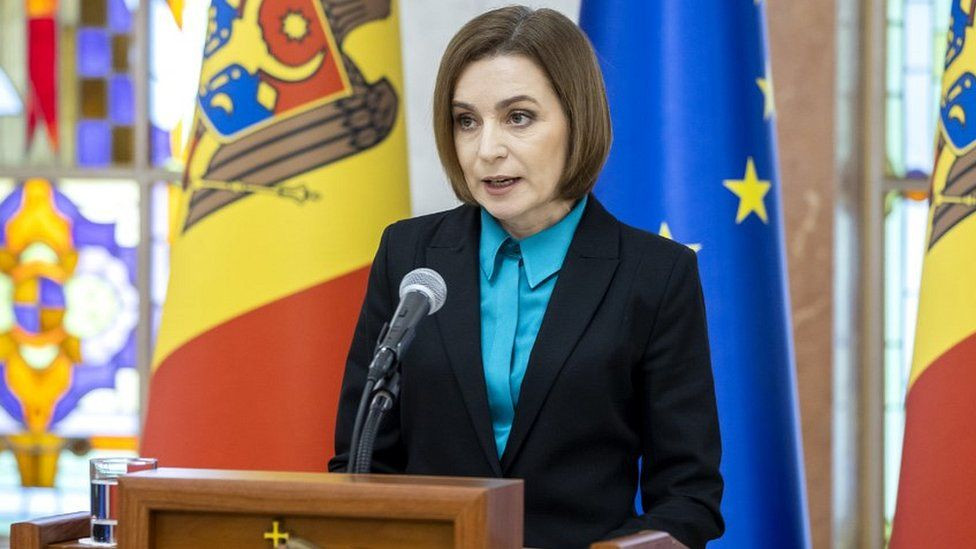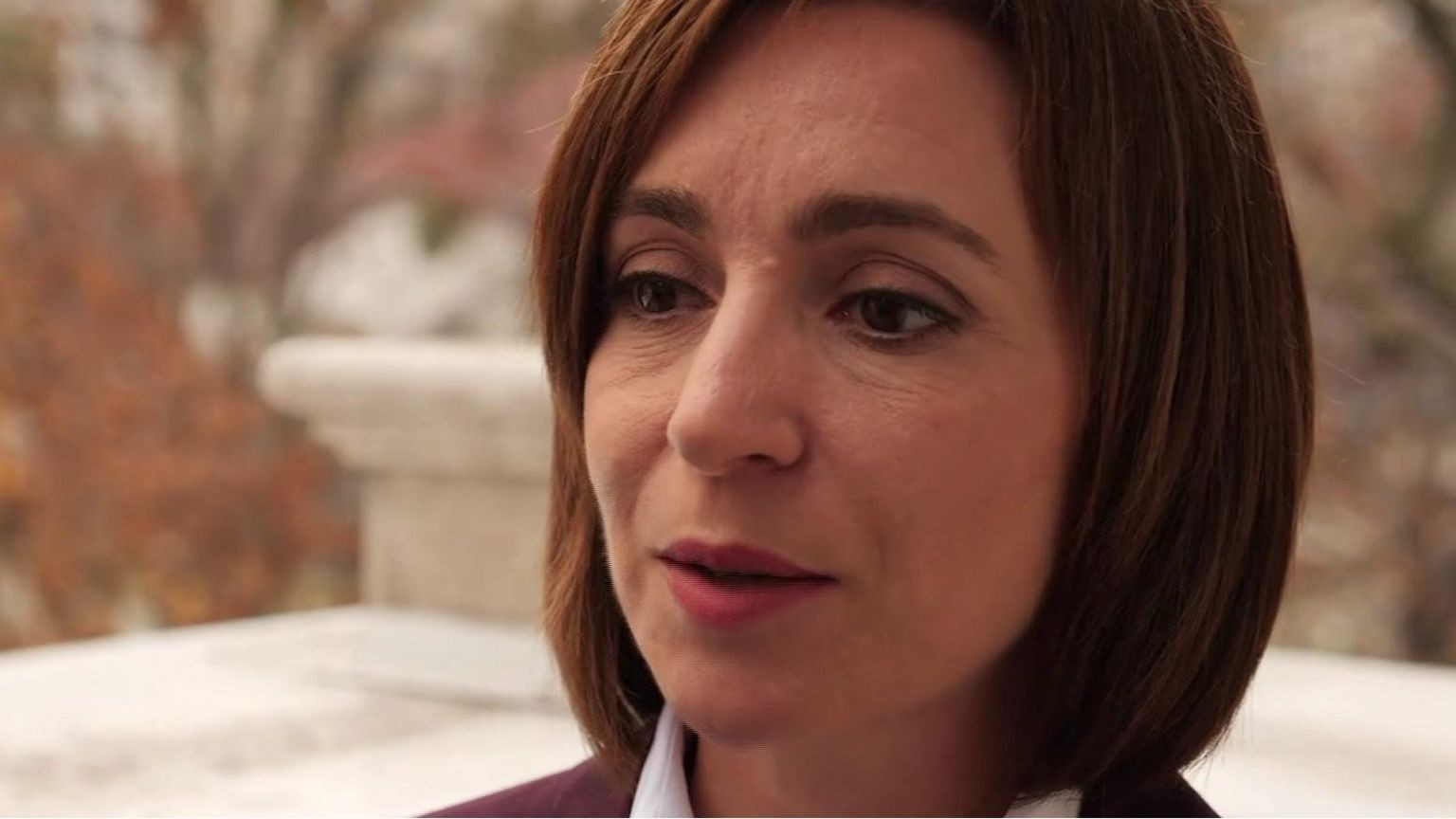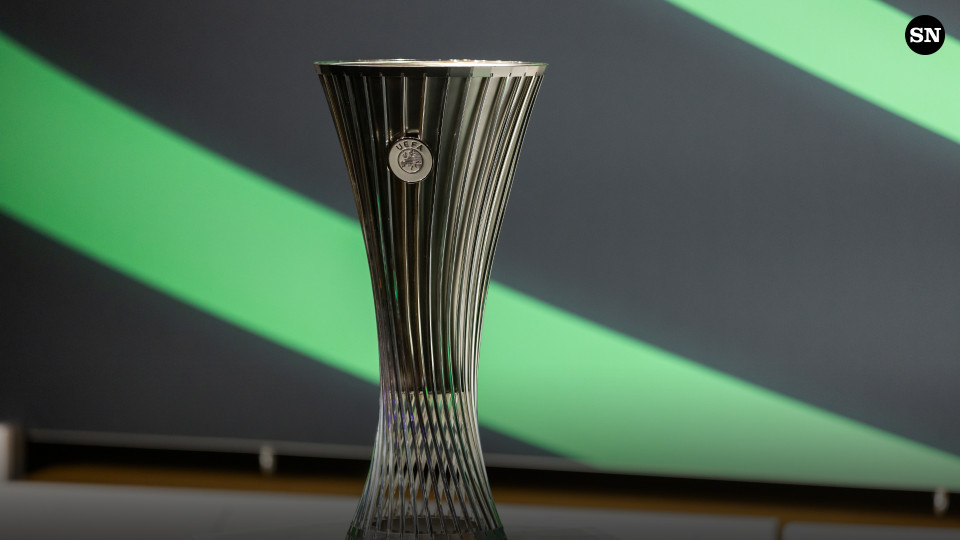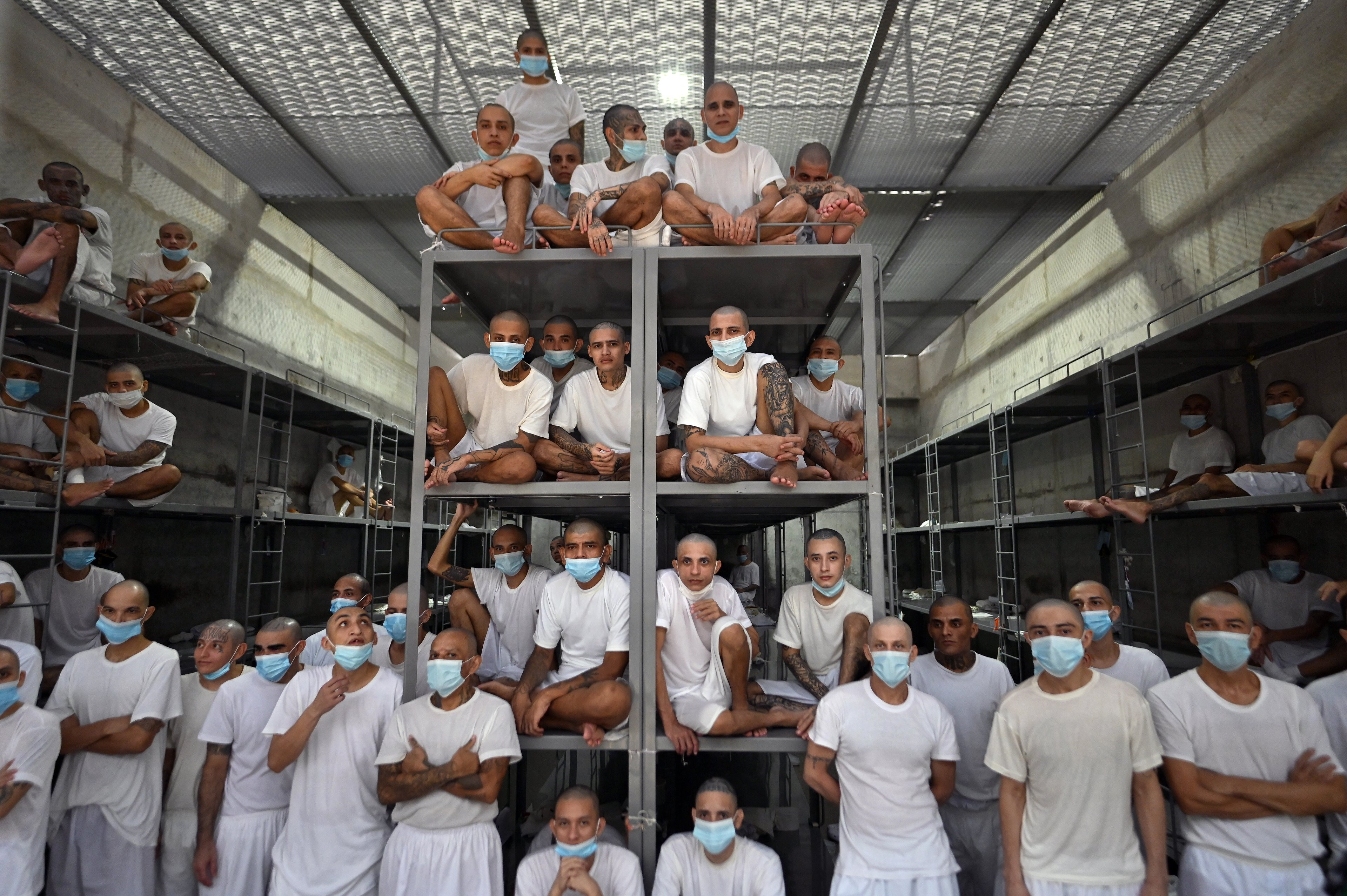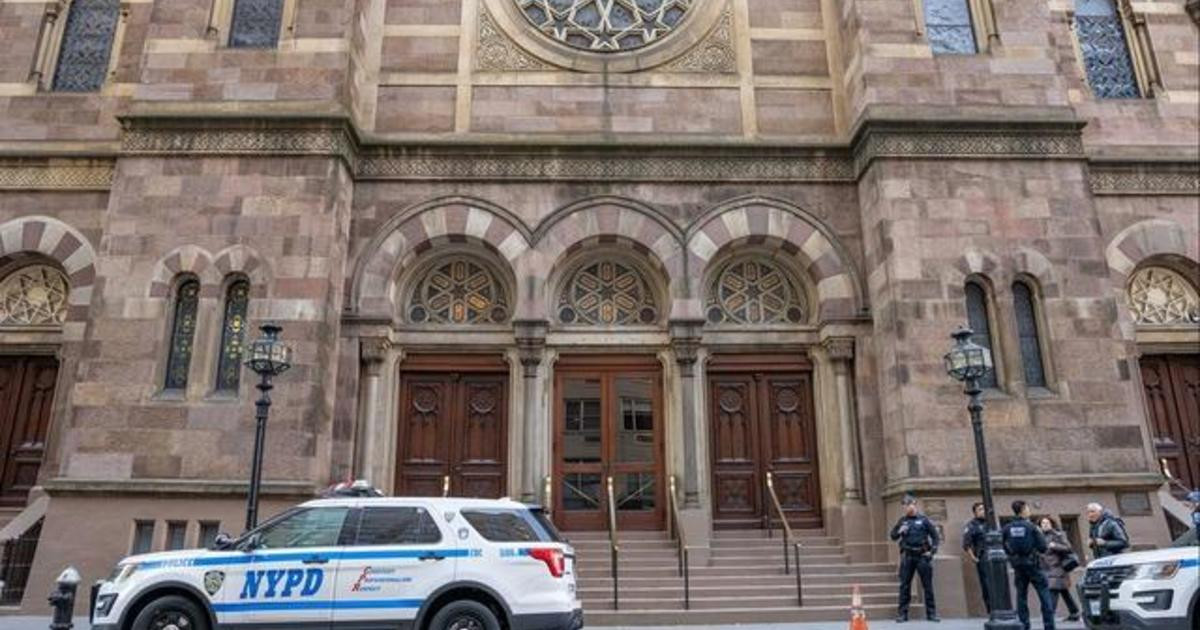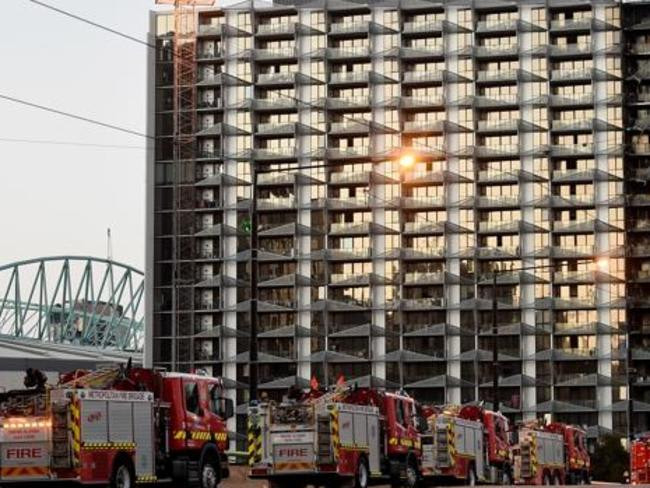Moldova’s pro-western president, Maia Sandu, blamed an “unprecedented assault on our country’s freedom and democracy” by “foreign forces” on Sunday night, as a pivotal referendum on EU membership remained too close to call with most votes counted. Moldovans went to the polls earlier in the day to cast their vote in a presidential election and an EU referendum that marked a key moment in the tug-of-war between Russia and the west over the future of the small, landlocked south-east European country with a population of about 2.5 million people. At 3am GMT on Monday, with 97.66% of the vote counted, 50% of Moldovans voted “yes”, according to results given on Moldova’s electoral commission website. But the results could yet change as votes are still being counted among the large Moldovan diaspora, which is favourable to joining the EU. The separate presidential election results showed that incumbent president Sandu topped the first round of the vote with about 38%, but she will now face her closest competitor, Alexandr Stoianoglo, a former prosecutor backed by the pro-Russian Socialists, in the second round. The double vote in one of Europe’s poorest countries was seen as a crucial test of Sandu’s pro-European agenda, as she had urged Moldovans to vote “yes” in the referendum to affirm EU accession as an “irreversible” constitutional goal. The narrow results will disappoint Sandu’s supporters and her allies in Brussels. Pre-election surveys indicated that Sandu held a comfortable lead over her main rival, Stoianoglo, and other candidates, while polls suggested that about 60% of voters supported the pro-EU path in the run-up to the referendum. Sandu, a 52-year-old former World Bank adviser, was first elected president in November 2020, riding a wave of popularity as an anti-corruption reformer with a pro-European agenda. Since the breakup of the Soviet Union, Moldova has gravitated between pro-western and pro-Russian courses, but under Sandu it had accelerated its push to escape Moscow’s orbit, especially as Russia launched its war in neighbouring Ukraine. The two ballots were held amid claims by Moldovan authorities that Moscow and its proxies had orchestrated an intense “hybrid war” campaign to destabilise the country and derail its EU path. “Moldova has faced an unprecedented assault on our country’s freedom and democracy, both today and in recent months,” Sandu told supporters in the capital, Chișinău, on Sunday as votes were being counted, adding that “criminal groups” had tried to “undermine a democratic process”. “We are waiting for the final results, and we will respond with firm decisions,” she added. The allegations against Moscow included funding pro-Kremlin opposition groups, spreading disinformation, meddling in local elections and backing a major vote-buying scheme. In particular, officials accused the fugitive pro-Russian businessman Ilan Shor, a vocal opponent of EU membership, of running a destabilising campaign from Moscow. Earlier this month, the national police chief, Viorel Cernăuțanu, accused Shor and Moscow of establishing a complex “mafia-style” voter-buying scheme and bribing 130,000 Moldovans – almost 10% of normal voter turnout – to vote against the referendum and in favour of Russia-friendly candidates in what he called an “unprecedented, direct attack”. On Thursday, law enforcement agencies said they had also uncovered a programme in which hundreds of people were taken to Russia to undergo training to stage riots and civil unrest. In total, Moldovan officials claimed Russia had spent about $100m this year on Moldova’s electoral processes. Moldova applied to join the EU after Russia’s full-scale invasion of neighbouring Ukraine, which was harshly condemned by Sandu and many in the country as tens of thousands of Ukranian refugees fled to Chișinău. Moldova officially began EU accession negotiations in June, though scepticism remains high about the country’s ability to implement the necessary democratic and judicial reforms in the near future. Observers believe Sandu could now be facing a tricky second-round runoff against a united pro-Moscow opposition front led by Stoianoglo. Stoianoglo, a former prosecutor general who was dismissed by Sandu, urged people to boycott the referendum or vote “no”, describing it as a “cynical” move to boost Sandu’s popularity. In an earlier interview with the Guardian, Stoianoglo denied that he was working on behalf of Russia. But he declined to criticise the Kremlin for its invasion of Ukraine and called for improved relations with Moscow. President Maia Sandu is favourite to secure another term in office in a presidential race with a total of 11 candidates. If Sandu fails to win an outright majority, a run-off will be held on November 3 which could pit her against Alexandr Stoianoglo, a Russia-friendly former prosecutor-general who is polling at around 10%. (AP Video by Nicolae Dumitrache) Moldova’s President Maia Sandu leaves after delivering a speech during a press briefing after the polls closed for the presidential election and the referendum on whether to enshrine in the Constitution the country’s path to European Union membership, in Chisinau, Moldova, early Monday, Oct. 21, 2024. (AP Photo/Vadim Ghirda) A woman holds a child as she casts her vote in Chisinau, Moldova, Sunday, Oct. 20, 2024, during a presidential election and a referendum on whether to enshrine in the Constitution the country’s path to European Union membership. (AP Photo/Vadim Ghirda) Moldova’s President Maia Sandu speaks to the media after casting her vote in Chisinau, Moldova, Sunday, Oct. 20, 2024, during a presidential election and a referendum on whether to enshrine in the Constitution the country’s path to European Union membership. (AP Photo/Vadim Ghirda) An election official assists a voter with her mobile phone flashlight during a power failure in Chisinau, Moldova, Sunday, Oct. 20, 2024, during a presidential election and a referendum on whether to enshrine in the Constitution the country’s path to European Union membership. (AP Photo/Nicolae Dumitrache) Election officials assist voters with mobile phone flashlights during a power failure in Chisinau, Moldova, Sunday, Oct. 20, 2024, during a presidential election and a referendum on whether to enshrine in the Constitution the country’s path to European Union membership. (AP Photo/Nicolae Dumitrache) A child holds a voting ballot in Chisinau, Moldova, Sunday, Oct. 20, 2024, during a presidential election and a referendum on whether to enshrine in the Constitution the country’s path to European Union membership. (AP Photo/Vadim Ghirda) Moldova’s President Maia Sandu prepares to cast her vote, in Chisinau, Moldova, Sunday, Oct. 20, 2024, during a presidential election and a referendum on whether to enshrine in the Constitution the country’s path to European Union membership. (AP Photo/Vadim Ghirda) A man gestures after casting his vote in Chisinau, Moldova, Sunday, Oct. 20, 2024, during a presidential election and a referendum on whether to enshrine in the Constitution the country’s path to European Union membership. (AP Photo/Vadim Ghirda) A man looks at candidates listed on the ballot in Chisinau, Moldova, Sunday, Oct. 20, 2024, during a presidential election and a referendum on whether to enshrine in the Constitution the country’s path to European Union membership. (AP Photo/Vadim Ghirda) A man using crutches exits a voting booth in Chisinau, Moldova, Sunday, Oct. 20, 2024, during a presidential election and a referendum on whether to enshrine in the Constitution the country’s path to European Union membership. (AP Photo/Vadim Ghirda) A woman hands a child her vote to cast in Chisinau, Moldova, Sunday, Oct. 20, 2024, during a presidential election and a referendum on whether to enshrine in the Constitution the country’s path to European Union membership. (AP Photo/Vadim Ghirda) A woman holds a child as she casts her vote in Chisinau, Moldova, Sunday, Oct. 20, 2024, during a presidential election and a referendum on whether to enshrine in the Constitution the country’s path to European Union membership. (AP Photo/Vadim Ghirda) Moldova’s President Maia Sandu, right, walks by Moldova’s Prime Minister Dorin Recean, left, after the polls closed for the presidential election and the referendum on whether to enshrine in the Constitution the country’s path to European Union membership, in Chisinau, Moldova, Monday, Oct. 21, 2024. (AP Photo/Vadim Ghirda) Moldova’s President Maia Sandu speaks to the media during a press briefing after the polls closed for the presidential election and the referendum on whether to enshrine in the Constitution the country’s path to European Union membership, in Chisinau, Moldova, early Monday, Oct. 21, 2024. (AP Photo/Vadim Ghirda) CHISINAU, Moldova (AP) — Moldova’s pro-Western president early Monday looked set to win the first round of a presidential race but accused “criminal groups” of undermining a referendum asking voters to decide whether to secure a path toward European Union membership, which risked being narrowly rejected. Nearly 95% of votes were counted in the EU referendum that asks voters to choose whether to enshrine in the country’s constitution a path toward the EU. About 52% of a total 1.2 million ballots voted “no,” while 47% voted “Yes.” However, ballots cast among the country’s large diaspora were still being tallied and tended to favor the EU path. “Criminal groups, working together with foreign forces hostile to our national interests, have attacked our country with tens of millions of euros, lies and propaganda, using the most disgraceful means to keep our citizens and our nation trapped in uncertainty and instability,” said President Maia Sandu after about 90% of the votes had been counted. “We have clear evidence that these criminal groups aimed to buy 300,000 votes — a fraud of unprecedented scale,” Sandu added. “Their objective was to undermine a democratic process.” The two pivotal ballots were held amid ongoing claims by Moldovan authorities that Moscow has intensified an alleged “hybrid war” campaign to destabilize the country and derail its EU path. The allegations include funding pro-Moscow opposition groups, spreading disinformation, meddling in local elections and backing a major vote-buying scheme. Over 50 countries go to the polls in 2024 In the presidential race of 11 candidates, Sandu looked set to win the first round with 39% of the vote but was unlikely to win an outright majority. She will likely face Alexandr Stoianoglo, a Russia-friendly former prosecutor general who outperformed polls with around 28% of the vote, in a run-off on Nov. 3. After polls closed at 9 p.m. local time, more than 1.5 million voters — about 51% of eligible voters — had cast ballots, according to the Central Electoral Commission. Cristian Cantir, a Moldovan associate professor of international relations at Oakland University, told The Associated Press that votes from the diaspora could prove crucial at this late stage. “If I were a pro-EU politician … that’s where I’d look for signs of good news,” he said. “I think the ideal scenario for them would have been to have something that showed overwhelming support for the EU — and that simply did not happen.” U.S. national security spokesman John Kirby echoed Russian interference concerns this week, saying in a statement that “Russia is working actively to undermine Moldova’s election and its European integration.” Moscow has repeatedly denied it is interfering in Moldova. “In the last several months, Moscow has dedicated millions of dollars to influencing Moldova’s presidential election,” Kirby said. “We assess that this money has gone toward financing its preferred parties and spreading disinformation on social media in favor of their campaigns.” In early October, Moldovan law enforcement said it had uncovered a massive vote-buying scheme orchestrated by Ilan Shor, an exiled pro-Russia oligarch who currently resides in Russia, which paid 15 million euros ($16.2 million) to 130,000 individuals to undermine the two ballots. Shor was convicted in absentia last year and sentenced to 15 years in prison on fraud and money laundering in the case of $1 billion that went missing from Moldovan banks in 2014. He denied the allegations, saying “the payments are legal” and cited a right to freedom of expression. Shor’s populist Russia-friendly Shor Party was declared unconstitutional last year and banned. Constantin Celac, a 37-year-old multimedia producer, said in central Chisinau that he cast his ballots in favor of Sandu and EU integration because “it is the best way” forward for Moldova. He said that while he does have concerns about Russian meddling, “I trust our government … to fight against them.” On Thursday, Moldovan authorities foiled another plot in which more than 100 young Moldovans received training in Moscow from private military groups on how to create civil unrest around the two votes. Some also attended “more advanced training in guerrilla camps” in Serbia and Bosnia, police said, and four people were detained for 30 days. Sandu cast her own ballot in the capital on Sunday and told the media that “Moldovans themselves must choose their own fate, and not others, nor the dirty money or the lies.” “I voted for Moldova to be able to develop in peace and liberty,” she said. A pro-Western government has been in power in Moldova since 2021, a year after Sandu won the presidency. A parliamentary election will be held next year. Moldova, a former Soviet republic with a population of about 2.5 million, applied to join the EU in the wake of Russia’s full-scale invasion of neighboring Ukraine on Feb. 24, 2022, and was granted candidate status that summer, alongside Ukraine. Brussels agreed in June to start membership negotiations. Loredana Godorogea, a 29-year-old IT manager who lives in Chisinau, said she also voted in favor of the incumbent president and the path toward the EU. “I think in the next five years we can be more close economically with the European Union, and I also think a big factor will be the war in Ukraine,” she said. Copyright 2024 The Associated Press. All Rights Reserved.
Luca Rossi
Environmental Reporter
Reporting on environmental issues and sustainability.




